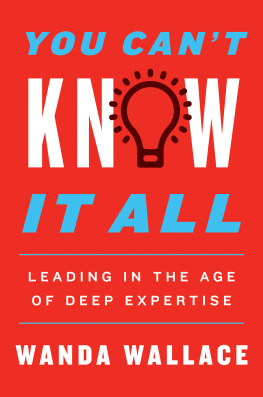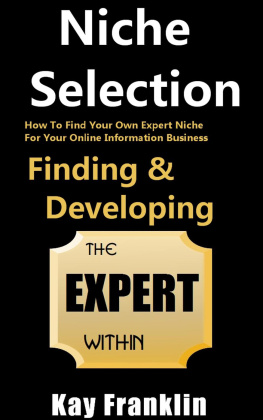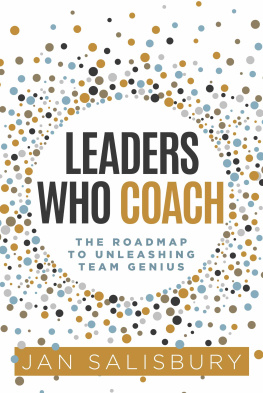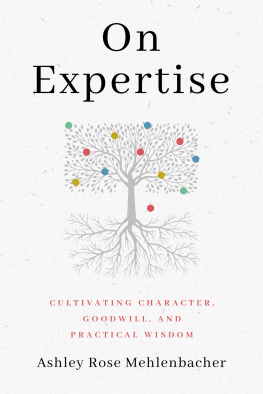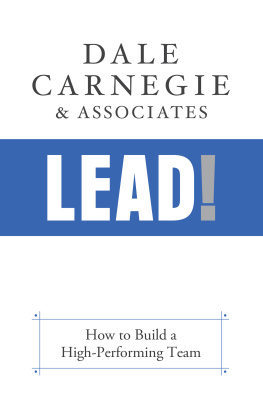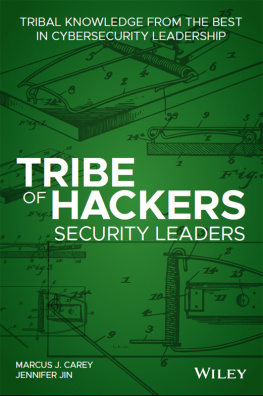Contents
Once again Julia is going to be late. This isnt like hershe prides herself on being punctual. But her flight from overseas was delayed and now her Uber is bogged down in traffic, so for the second time in two months shes behind in getting to an Executive Committee meeting where shes supposed to give an update on a global project shes heading.
On impulse, she jumps out of the car and begins to hurry on foot, wheeling her bag behind her. But its not just the traffic or her lateness that is exasperating her.
How do I do this job? she asks no one.
After years of seeking a promotion from a role where her leadership authority was based on her unquestioned expertise in risk, she was entrusted with an important role. But she doesnt know how to handle it. The job is completely alien to her experience.
Shes at the hub of several functional areas that are trying to implement agile technologies. Shes supposed to mobilize data scientists, IT architects, and many other specialists, but they dont formally report to her. And she doesnt understand those groups. She knows nothing about data science or IT architecture.
How do I talk to the ExCom about this when Im not an expert in all the pieces? she asks.
She needs help but doesnt know where to turn. And she realizes, as she sees her Uber drive away, that it was a mistake to try to make it on foot. The meeting is still too far away. Shes never going to make it on time.
Im going to fail, she says. I am failing.
* * *
JuliaIve altered details, including her name, to protect her identityis a coaching client of mine. She is the classic expert leader. She has a huge analytical brain. Shes brilliant at evaluating investment risk. Shes known for studying mountains of documents in order to grasp every detail of the issues facing her.
During her eight years in her expert-leader position, she received nothing but excellent evaluations. Bosses and board members demonstrated unquestioned respect for her capabilities. Her many subordinates understood that she knew everything there was to know about her field, and they were used to meeting her very high standards. They considered her a good manager, even if she sometimes drove them batty seeking perfection.
Despite the rave reviews, she had a hard time getting promoted. So when she was finally offered a big move up, she jumped at the chance. Privately, she was a little alarmed at the vagueness of the job description, but she believed that whatever the challenges, she could focus her analytical capabilities on them and figure out how to deliver results, as she always had. In the weeks leading up to the move, top management was duly impressed by her transformation into something of an expert on agile technologies.
When the transition came, it was just as scary as it had seemed. Although she was responsible for a global team, she was given very few direct reports. She had little in the way of dedicated resources. Although she kept reassuring her family and friends that everything was going well, she didnt really know what to do in her job. She felt out of control. She didnt know how to interact with colleagues who had widely different backgrounds and areas of expertise. She felt that people mistrusted her.
A New Kind of Leadership
Julia is facing a challenge that confronts almost everyone who seeks to move onward and upward in an organization: learning to lead in unfamiliar ways. Perhaps you find yourself in a similar place.
In most of the cases Ive encountered in my decades of teaching, coaching, consulting, and leading workshops for global corporations, the main issue is transitioning from a position where authority and credibility are based on an individuals deep expertisefinancial knowledge, for example, or technical masteryinto a role where specific expertise is much less relevant, where a persons leadership must encompass groups with an array of skills, abilities, attitudes, and perceptions.
In these situations, Julias question is universal:
How do I do this job?
This book answers that question.
The basic idea is that expert leadershipwhat Julia was doing for eight yearsis fundamentally different from leading heterogeneous groups of people who lack a shared knowledge base.
I arrived at this understanding gradually. I had been an academicI taught at the Fuqua School of Business at Duke University and was later an associate dean in Executive Education thereso I was familiar with classic approaches to leadership. But in working as a coach and teacher in the real world, I saw that some of the accepted wisdom didnt fit the circumstances of many of the leaders and teams I was working with.
I saw firsthand that there is a whole universe of expert leadership in companies, and its not confined to particular age groups or corporate echelons. The assumption used to be that although most individual contributors in knowledge companies are expert in something, specific expertise becomes less and less important as you move up the leadership pipeline through the stages of managing teams, running functions, becoming a general manager, and eventually graduating into the C-suite. Supposedly, the higher you go, the more you need to be a generalist leader.
But leadership pipelines are changing. Business today is so technical and complex that many companies desperately need their leaders to have deep expertise. I know of one leader who was so attached to his area of knowledge that midway through a program aimed at turning high-potential managers into international leaders, he simply dropped out and went back to his beloved area of expertise. Once upon a time this would have been career suicidehe would have been forever relegated to the bottom of the heap. Yet today hes at the top of the organization, because his area of expertise is crucial to the company! In todays business environment, experts like him are rewarded, promoted, and celebrated for their knowledge.
Companies want leaderseven chief executive officers (CEOs)to have extensive knowledge about the business segment. Managers want colleagues who understand the nuts and bolts. Think about it: Would you want your company to have a technology head who didnt know the technology? And employees want to be led by knowledgeable people.
Whether its in finance, IT, legal, biotech, or real estate, experts can be found throughout the corporate hierarchy. The old-fashioned view of the corporation as being populated by professional managers is just wrong today. Instead it is full of specialists who have taken on management tasks.
But organizations and rising leaders are not prepared to deal with this new reality. Many of these managers mainly know how to lead on the basis of their expertise, which is fine if theyre heading a function full of people immersed in the same knowledge. But at some point many leaders face a transition like Julias. They have to start leading in other ways so that they can manage people who dont share their knowledge base and have a diverse range of viewpoints and agendas.
Im not the only person to see thistheres a burgeoning area of academic literature that focuses on expert leadership and compares it with generalist leadership. But I might be the only consultant or coach who rejects the expert/generalist dichotomy in particular and the generalist leader terminology in general. I dont see many pure generalistsif anywho can parachute into completely new territory and lead comfortably there.
Generalist implies that as you move upward, you need to become a jack-of-all-trades, a manager who knows a little of this and a little of that. I disagreeI think the skill required is not generalism but what I call spanning, which captures the idea that your leadership can no longer be based just on your specific knowledge and instead needs to span groups that have differing knowledge bases.

